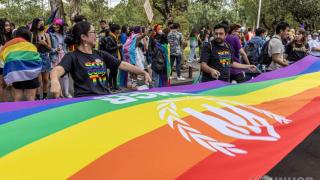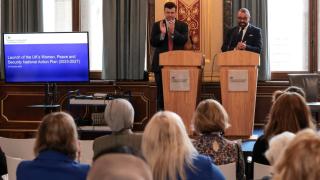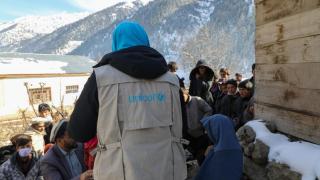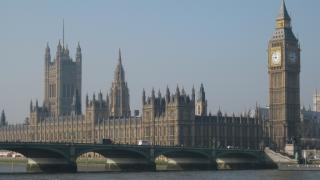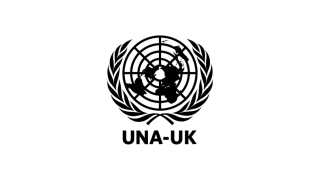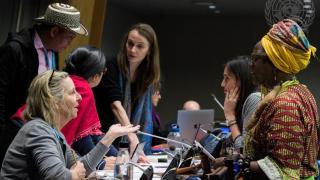In 1993, UN member states took the significant step of adopting the Vienna Declaration, and establishing a High Commissioner for Human Rights. This post and its Office (known as OHCHR) were mandated to lead the UN’s human rights work.
It seems hard to imagine now how the UN undertook this work without a dedicated lead. By 1993, seven of the UN’s nine core human rights treaties had already been adopted, covering torture, racial discrimination and the rights of migrant workers. Yet until OHCHR was set up, there was little done to provide support and technical assistance to states’ implementation.
In the twenty years since, OHCHR has seen some substantial achievements. The interpretation of human rights has expanded, and two further core treaties have been adopted (on enforced disappearances and the rights of persons with disabilities). In certain circumstances, individuals can file complaints of human rights violations to UN committees. With 59 OHCHR field offices worldwide, civil society groups have also gained a useful ally and partner in progressing human rights in their national contexts.
Some of the most noteworthy developments came with the UN’s World Summit in 2005. Then Secretary-General Kofi Annan elevated human rights to be one of the three main pillars of the UN’s work – alongside peace and security and sustainable development. As the body providing the Secretariat for the UN’s human rights machinery, this date can be viewed as a major turning point.
It was also at this point that the much-maligned Commission on Human Rights was replaced with the Human Rights Council. With expanded membership and more frequent meetings, the Council’s work has become increasingly rigorous in recent years. Last year it adopted more than 100 resolutions on a wide variety of issues, including on the situation in Syria, the rights of older persons and the enjoyment of human rights on the internet.
One of the Council’s innovations has proven particularly promising. The Universal Periodic Review – the process by which every member state has its human rights record assessed by its peers – is now in its second cycle. With 100 per cent participation of member states in its first cycle, and with only a slight delay in Israel’s review this time round, the UPR is the only universal UN human rights mechanism.
Other vital mechanisms include the treaty body system – the committees which regularly monitor states’ implementation of human rights treaties – and the special procedures – independent experts mandated to investigate a range of thematic and country-specific concerns. The latter have also grown in number in recent years – there are currently 51 such experts, all of whom are unpaid and asked to conduct their work with very few resources.
Unfortunately the issue of funding is one which affects all areas of OHCHR’s mandate, and is arguably the biggest threat to its ability to undertake this work effectively. This increasing workload has not been accompanied by the equivalent in funding. OHCHR currently receives less than three per cent of the UN regular budget. In 2012-2013, this amounted to $168.5 million, covering just a third of the Office’s budgetary needs.
Reliant on voluntary contributions for the remaining two-thirds, OHCHR received $111.1 million in 2012, over 50 per cent of which was earmarked for specific activities. The Office predicts that it will end 2013 with a deficit of $15 million, financed from reserves which are expected to have run out by 2015.
Clearly this is a situation which cannot continue, yet, if anything, it looks set to worsen. The General Assembly’s Fifth Committee, which oversees financial affairs, is currently discussing the 2014-2015 budget, which includes cuts for OHCHR of $8.3 million. Navi Pillay, the current High Commissioner, recently said in an address in the UK Houses of Parliament that “global demand for UN services to human rights is dangerously outstripping the supply”.
For its Human Rights Day campaign, UNA-UK is calling on the UK to resist these budget cuts and to show OHCHR and its work its full support.
Human rights activists from the UK to Uruguay will attest that now is not the time for complacency. Many report a determined pushback from quarters which deny that universal human rights even exist, let alone admit that a growing international framework for upholding these standards is necessary. OHCHR’s task, as the UN body tasked with spearheading these efforts, is far from over. It is therefore vital to ensure that it is adequately equipped to take on another twenty years of promoting and protecting human rights.
Hayley Richardson is Policy & Advocacy Officer at UNA-UK. This article originally appeared on openDemocracy.net, and has been reproduced with their permission.
Photo: Navi Pillay, UN High Commissioner for Human Rights. © UN Photo.

